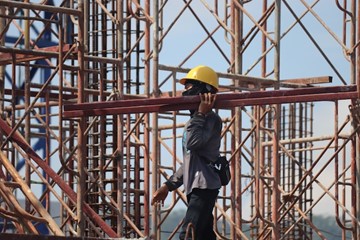
Countries servicing the globe banded together to share ideas, data, and guidance on the G20 during the B20 summit. The conclusion? Downtown Nixa Mark Anderson reports that international infrastructure project investment remains lacking. The group tasked with studying infrastructure financing and growth showed the investment gap must be filled to drive inclusive development and reach its potential.
Annually, $2.5 billion is invested in infrastructure projects related to energy, telecommunications, transportation, and water, with an additional $7 billion invested in social infrastructure (e.g., schools, hospitals, and urban developments), housing, and public service networks.
While those figures may seem fruitful, evidence shows it’s not enough. Should investments remain at this level, the world will experience lower economic growth and insufficient public services.
Closing the Investment Gap: The Ticket to Substantial Worldwide Economic Development
According to BBVA’s executive board member and B20’s working group vice president, José Manuel González-Páramo, closing the infrastructure investment gap is perhaps the global economy’s primary challenge.
The importance of addressing the lacking financing rests on the following three major points:
- Infrastructure has a crucial part to play in long-term development
- Building infrastructure produces jobs
- Infrastructure has considerable, yet currently unexploited, business opportunities within it
Unfortunately, data shows that investments are yet to rise from the financial crisis. In fact, the percentage of infrastructure investment has fallen in 11 of the economies included in the G20.
Addressing Regulatory Hurdles to Incite Positive Change
With the above in mind, González-Páramo notes it’s necessary to deal with regulatory obstacles that prevent cooperation with multinational countries and impedes digitalization and innovation. As soon as such issues are resolved, bridging the infrastructure investment gap will be possible.
The B20 Forum Empowers the Voices of Businesses and Handles Infrastructure Investment Disparities
The B20 is a forum comprising private international companies that provide recommendations to G20 governments with one main goal — to tackle the most vital economic challenges.
The global mechanism promotes dialogue between governments, businesses, and society. Aligned with the G20, it recommends decision-making associated with social, economic, and corporate issues.
The G20 is a global forum aiming to achieve economic, political, and financial cooperation. Currently, it’s made up of 19 countries and the European Union.

Uniting the B20 for Infrastructure Investment Boosts
Every year, the task forces within the B20 are instructed with different themes related to the modern matters of the world. Recently, there were eight themes, including the following:
- Financing growth and infrastructure
- Agreements and investments
- Small- and medium-sized business development
- Integrity and compliance
- Energy, resource, and climate efficiency
- Employment and education
- Food system sustainability
- Digital economy and industry 4.0
González-Páramo’s working group focused on the promotion of public-private collaboration, infrastructure as an asset class, boosting affordable housing, and cross-border financial legislation consistencies.
Overall, the goal is to establish the framework and infrastructure necessary to foster innovation and achieve the sustainable, inclusive growth the globe craves. By allocating enough funds and focusing on today’s key issues, infrastructure investment can unlock economic development around the world.





